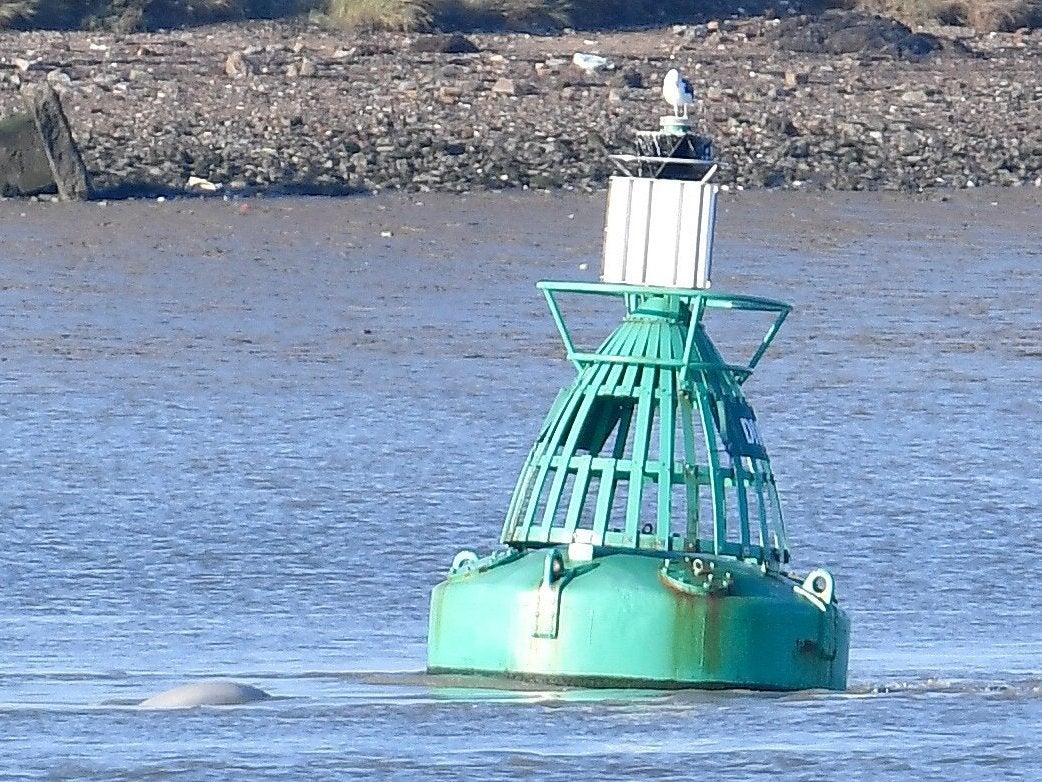Thames whale: Beluga spotted again in London river as fears grows it will become stranded
Marine experts are ready to re-float the whale if it gets into trouble on a sandbank
A rare beluga whale spotted in the River Thames has reappeared near to where it was first seen as conservationists wait on standby in case the creature becomes stranded on a sandbank.
The mammal, normally found in the Arctic, was seen near Gravesend in Kent on Tuesday afternoon and appeared to be swimming strongly and feeding in the estuary.
It was spotted for a second time on Wednesday morning, again near to Gravesend in the Thames estuary.
Specialist marine medics now have rescue pontoons nearby, ready to re-float the whale – already nicknamed “Benny” by the public – should it get in serious trouble.
Rob Lott of the Whale and Dolphin Conservation (WDC) said the beluga whale was being watched carefully in case it “live strands” anywhere along the inland stretch of the river.
“It’s a monitoring operation at the moment, obviously the longer it stays in the Thames estuary then it will become more of a concern,” he told BBC Radio 5Live.
Tanya Ferry, environment manager at the Port of London Authority, warned of the danger posed by plastic bags in the Thames. In June a pilot whale was found dead in Thailand after swallowing 80 plastic bags.
“We do have quite a lot of plastic bags, which could be quite an issue,” Ms Ferry told the BBC. “We’re hoping if we give it enough space and keep an eye on it, it will find its own way out of the Thames to an environment that’s more appropriate for it.”
“We certainly don’t want people trying to rescue it.”

The British Divers Marine Life Rescue group has also warned against anyone using a boat to get up close to the whale, urging the public to “watch it from the shore”.
The network of volunteer medics has sent an area coordinator down to the river and has rescue pontoons – inflatable craft used to re-float whales – in place in case the beluga whale needs to be moved to safety.
Beluga whales can grow up to 20ft in length and are usually found in the icy waters around Greenland, Svalbard or the Barents Sea.
The Thames whale was first spotted by ecologist Dave Andrews, who tweeted footage of the mammal on Tuesday afternoon. “Can’t believe I’m writing this, no joke - BELUGA in the Thames off Coalhouse Fort.”
Among the theories explaining how the animal got lost is that it followed a shoal of fish such as herring, capelin or cod.
“It could have followed a food source, it could have become disorientated or it could have been motivated by a disturbance,” Lucy Babey, head of science and conservation at cetacean charity Orca, told The Independent.
Danny Groves, from WDC said: “This is a High Arctic species thousands of miles from where it should be... He or she is obviously very lost and quite possibly in trouble.”
The last reported sighting of beluga in UK waters was in 2015, when two were spotted off the Northumberland coast and one in Northern Ireland.
In 2006, a whale died after it swam up the river into central London despite efforts to rescue the animal.
Join our commenting forum
Join thought-provoking conversations, follow other Independent readers and see their replies
Comments
Bookmark popover
Removed from bookmarks